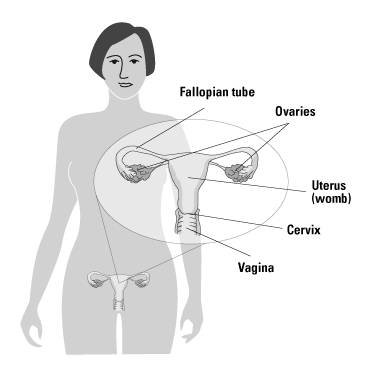Health Tools
Hygiene
Naturopathy
Mental health
More Articles
Cervical Cancer - Causes And Symptoms
Causes
While the precise origins of cervical cancer remain unknown, a number of risk factors seem to be associated with
the illness, including:
Infection HPV Virus
More than 90% of women with cancer of the cervix are infected with the Human
Papilloma Virus (HPV). The single most significant risk factor for cervical cancer is HPV. Warts are typically caused by HPV
in the vaginal area. During unprotected sex, the viruses are transferred from one person to another. during unprotected sex. Because
HPV is spread mainly through sex, women who start having sex at a young age, who have multiple sexual
partners, and whose partners have had many other partners are more likely to have HPV.
Early sexual activity is one such factor. The risk of HPV is increased because the cervix's lining cells do not
fully mature until an individual reaches the age of 18.
The risk of HPV is also increased by other STDs, generally known as sexuallyHIV/AIDS transmitted illnesses, or STIs, such as
gonorrhea, chlamydia, syphilis, or HIV/AIDS.
The risk of HPV is also increased by other STDs, generally known as sexually transmitted illnesses, or STIs, such as gonorrhea, chlamydia, syphilis, or HIV/AIDS.
Cigarette smokers are two to three times more likely than nonsmokers to develop cervix cancer.Possible long-term
(more than five years) use of oral contraceptives.
An irregular screening history- Women who have not regularly had a Pap test (smear) are at increased risk of
cervical cancer. In particular, many women over age 60 have not had regular Pap tests and are at increased risk.
Symptoms
Pelvic pain or pain during intercourse, bleeding between periods, post-menstrual
bleeding and discharge from the vagina .
Main cause
HPV (Human papillomavirus infection): HPV is the main and necessary virus for this
cancer. It is a sexually transmitted virus and even
rubbing of the private parts can cause it.Most people are not even aware that they are
carrying HPV or that they are infecting their partner with it. Therefore, it might not
be able to determine when or who infected you with HPV. Most people contract HPV shortly
after they begin having intercourse because it is so widespread. And it might not be
discovered for years.
